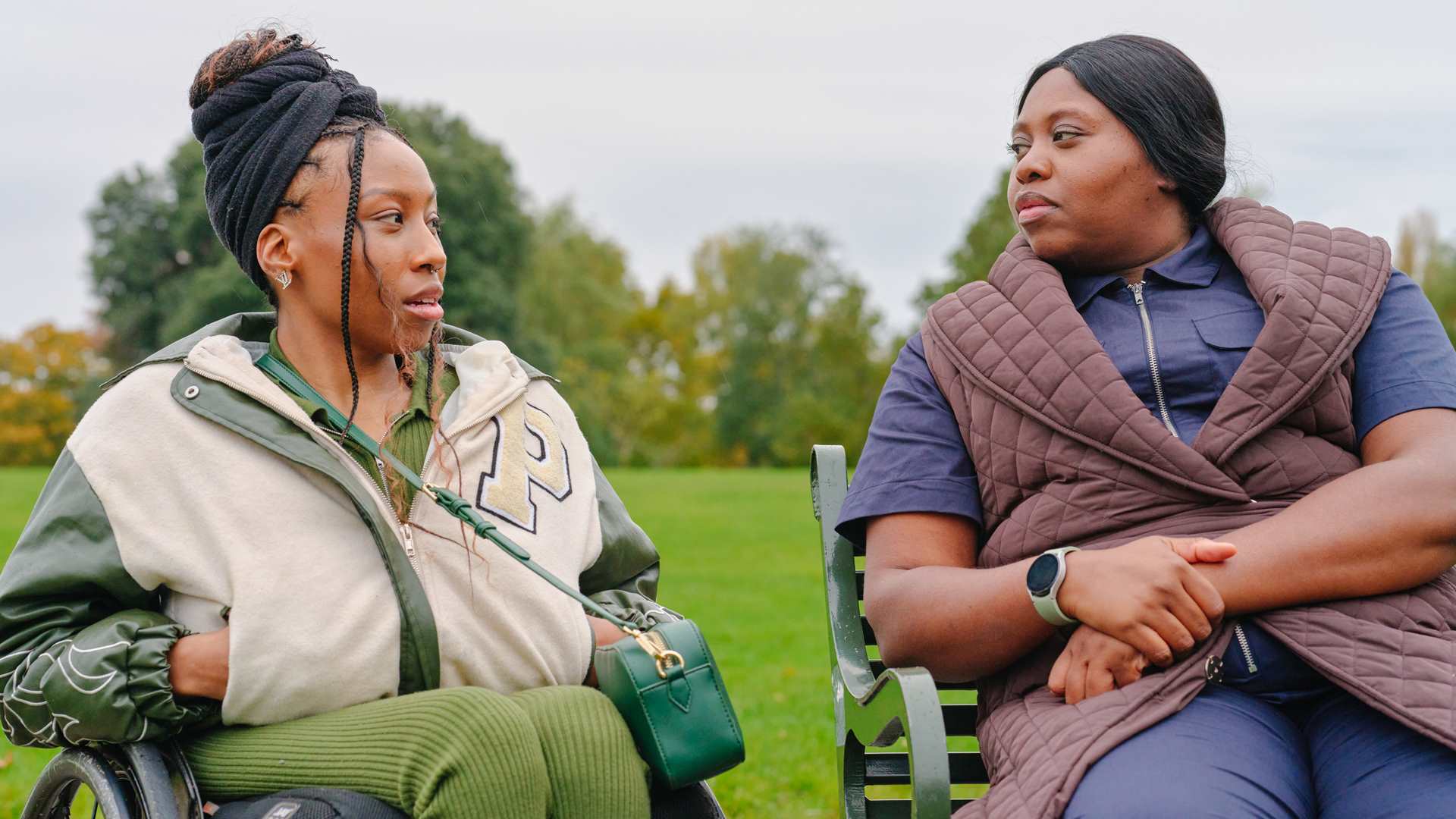Why Your African Aunty Thinks She’s a Life Coach

If you’ve ever been cornered by an African aunty at a wedding or church function, you’ve probably received a motivational speech that could rival a TED Talk. It starts as a harmless concern: “So, when will you marry?” or “Are you still doing that your job?” However, before you can blink, it’s a full-blown life intervention, complete with parables, personal testimonials, and unsolicited business advice. African aunties have mastered the art of turning casual conversation into self-help lectures. They are the continent’s unlicensed therapists, unofficial mentors, and motivational speakers. And whether you like it or not, you’re getting a session today.
But why does every African aunty think she’s a life coach?
Communalism: Our Default Setting
To understand the African aunty phenomenon, you have to start with community. Africa has always been deeply communal. Individuals see themselves as part of a larger whole, and that means your choices are not just yours, they’re the village’s business. The line between care and control blurs easily. In many parts of Africa, this collective approach to life is both survival and tradition. People grow up surrounded by elders who guide, correct, and sometimes scold in equal measure. That is how wisdom is passed down, through storytelling, observation, and correction.
Some of these have filtered into this age, with the older people seeing the need to fulfill a cultural obligation: to guide the next generation, whether they asked for it or not.

Experience as Authority
You've probably heard of the popular saying “experience is the best teacher”. In fact, The Yorubas from South West Nigeria have a saying that goes, “If a child has more clothes than an elder, he cannot have more rags than them.” This can be loosely translated to mean that an elder definitely has more experience than a child.
In African households, experience is currency. Whoever has lived and seen the most automatically becomes an expert. The logic is simply based on the fact that they've been through it and so they know better. A lot of the older people, African aunties inclusive, have gone through one or two defining experiences in their lifetime. In their minds, those victories make them qualified to teach. And to be fair, they're not entirely wrong as they sometimes share from real experiences. The problem is that not all of it translates to the modern world.
In the age of therapy, self-awareness, and boundaries, these lessons sometimes clash with modern values. But that doesn’t make them stop. Knowing what worked means that it can still work, right? So, the lectures keep coming, not from a place of arrogance but strong conviction.
Funny enough, these pieces of advice don't just roll out, they come with the most appropriate stellar worthy performances. A hand gesture here, a turning of the mouth, a dramatic sign, loud clapping and well enunciated parables all characterize their stories. In a culture that prizes oral storytelling, advice isn’t just about helping, it’s about how it’s delivered. It must carry rhythm, humor, and authority. And so even the most basic idea is presented in the most dramatic way. Over time, this performative wisdom becomes part of identity, it shifts from being what they do, to who they are.
The Rise of the Digital Aunty
Social Insight
Navigate the Rhythms of African Communities
Bold Conversations. Real Impact. True Narratives.
Today, African aunties are no longer confined to living rooms anymore. They've gone digital.
WhatsApp broadcasts, Facebook memes, and viral reels have turned the African aunty into a content creator. The same advice that used to come with a cup of tea and biscuits now comes in Canva graphics: “A woman must never forget her responsibilities” or “Don’t marry a man who cannot pray.”
Social media gave aunties something different visibility. And now, the typical African communal stage has gotten global. Typically, you can find this group of people in comment sections mentoring strangers, in group chats correcting people’s life choices, and in voice notes that sound suspiciously like advice wrapped in checkups. Safe to say, they're the ‘auntfluencers’ of Africa, pushing perspectives born out of belief.

Why We Still Listen, Even When We Roll Our Eyes
Despite the laughter, memes, and occasional exasperation and frustration, most of us still listen. Deep down, there’s something comforting about the aunty’s certainty. In a world of ambiguity and confusion, her voice carries conviction. The advice may not always fit our modern dilemmas, but it carries something lacking nowadays, grounding. African aunties believe in values that feel increasingly rare nowadays, such as endurance, family, faith, and self-respect. Their methods may be outdated, but the intent is often well-rooted in care. Beyond the jokes, these aunties represent something profound about African culture, the preservation of oral wisdom. They know how to keep people connected to identity and values. Perhaps that’s why we still engage. We laugh, we roll our eyes, we argue, but we also remember. Their words linger because they come from love, even when it feels like control.
The Life Coach We Can’t Escape
So yes, your African aunty thinks she’s a life coach, and in a strange way, she kind of is. She’s a generational bridge wrapped in head tie and wisdom. Her counsel may come unsolicited and her delivery might test your patience, but beneath the dramatics lies a deep-rooted sense of duty and the belief that her words might save you from mistakes she’s already seen before. In a society where many navigate the crossroads of modern life and tradition on their own, she serves an anchor. Her lessons are woven in proverbs, anecdotes, and the occasional guilt trip, because why not? But, they carry the tune of generations past, a part of the invisible structure that holds families and communities together.
At the core, the typical African aunty represents something we often forget; that wisdom doesn’t always come dressed in credentials. It comes through people who’ve lived, who’ve stumbled, who’ve watched others grow. So the next time an aunty sits you down to “talk small,” resist the urge to roll your eyes. Take a deep breath, grab a drink, and really listen. Between the laughter, the warnings, and the side-eyes, there’s often truth tucked in her words. It might just be the most unexpected, and surprisingly free coaching session you’ll ever get.
Social Insight
Navigate the Rhythms of African Communities
Bold Conversations. Real Impact. True Narratives.
You may also like...
Super Eagles Fury! Coach Eric Chelle Slammed Over Shocking $130K Salary Demand!
)
Super Eagles head coach Eric Chelle's demands for a $130,000 monthly salary and extensive benefits have ignited a major ...
Premier League Immortal! James Milner Shatters Appearance Record, Klopp Hails Legend!

Football icon James Milner has surpassed Gareth Barry's Premier League appearance record, making his 654th outing at age...
Starfleet Shockwave: Fans Missed Key Detail in 'Deep Space Nine' Icon's 'Starfleet Academy' Return!

Starfleet Academy's latest episode features the long-awaited return of Jake Sisko, honoring his legendary father, Captai...
Rhaenyra's Destiny: 'House of the Dragon' Hints at Shocking Game of Thrones Finale Twist!

The 'House of the Dragon' Season 3 teaser hints at a dark path for Rhaenyra, suggesting she may descend into madness. He...
Amidah Lateef Unveils Shocking Truth About Nigerian University Hostel Crisis!

Many university students are forced to live off-campus due to limited hostel spaces, facing daily commutes, financial bu...
African Development Soars: Eswatini Hails Ethiopia's Ambitious Mega Projects

The Kingdom of Eswatini has lauded Ethiopia's significant strides in large-scale development projects, particularly high...
West African Tensions Mount: Ghana Drags Togo to Arbitration Over Maritime Borders

Ghana has initiated international arbitration under UNCLOS to settle its long-standing maritime boundary dispute with To...
Indian AI Arena Ignites: Sarvam Unleashes Indus AI Chat App in Fierce Market Battle

Sarvam, an Indian AI startup, has launched its Indus chat app, powered by its 105-billion-parameter large language model...



